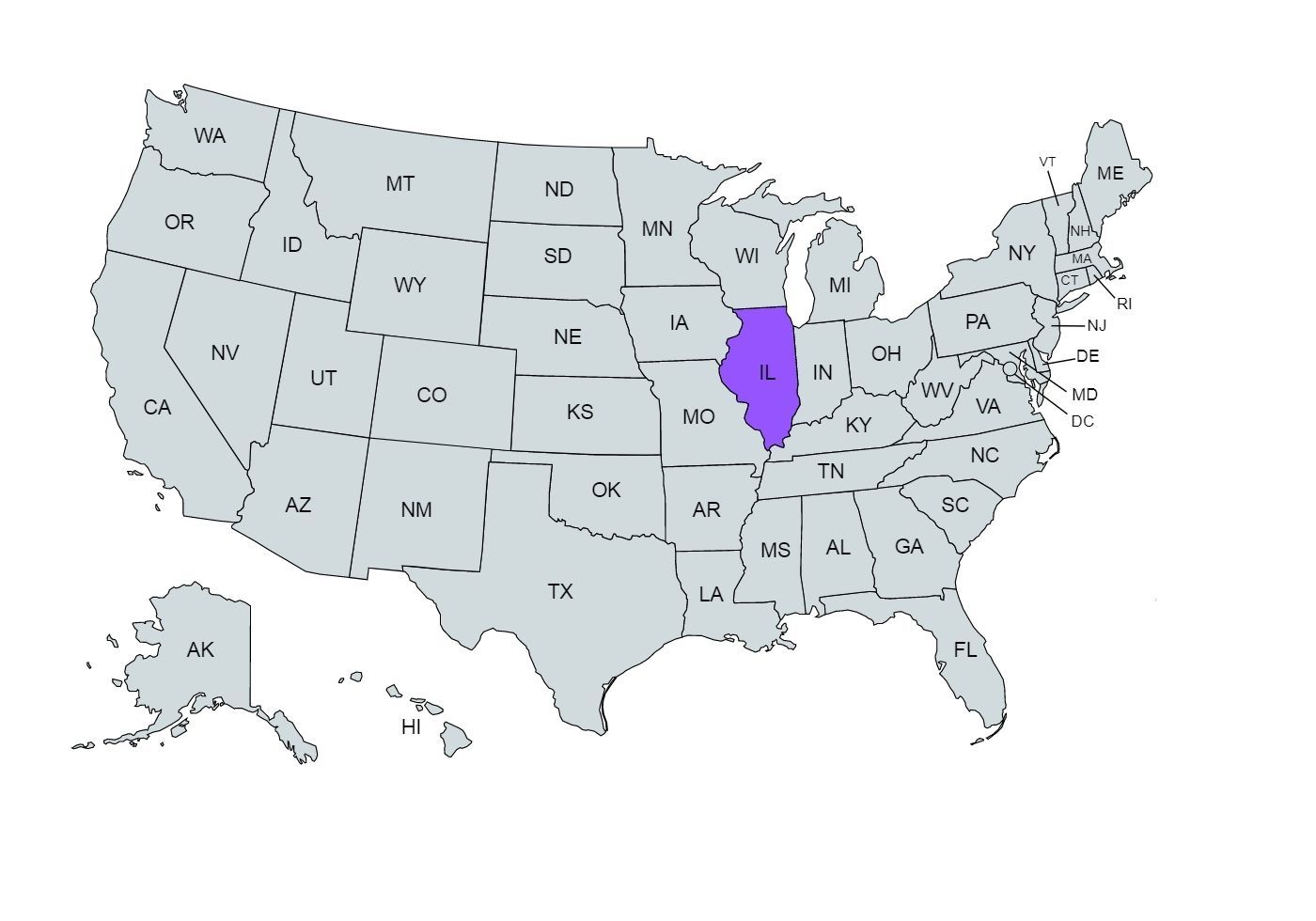Illinois Paycheck Calculator: Calculate Your Take Home Pay
If you’re wondering, “How do I figure out my take home pay in Illinois?” we’ve got you covered.
Use our simple paycheck calculator to estimate your net or “take home” pay after taxes, as an hourly or salaried employee in Illinois.
Paycheck Calculator
Meanwhile, get ahead with our free resources:
How Does the Paycheck Calculator Work?
Input your salary information, such as wage and pay frequency, and our tool will handle the tax calculations for you. Once you’ve filled in all the information, click the “Calculate Tax” button, and the calculator will provide an estimate of your net or “take home” pay for the specified pay period.
Overview of Illinois Taxes
Illinois boasts the fifth-largest gross domestic product (GDP) in the US with a diverse economy fueled by Chicago. This global financial hub is home to major corporations, the world's biggest futures exchange, and a wide range of industries driving its impressive $1.033 trillion gross state product.

If you decide to live and work in this thriving state, here's what you can expect taxes-wise.
Each pay cycle, your employer will deduct 6.2% for Social Security taxes and 1.45% for Medicare taxes from your earnings.
These combined are referred to as FICA taxes, with your employer matching the contribution. Any income surpassing $200,000 will incur an additional 0.9% Medicare tax.
Federal income taxes are also withheld from your paychecks, varying based on income, filing status, and indicated tax credits on your W-4 form.
Please note that certain deductions, such as premiums for health, life, or disability insurance, as well as contributions to 401(k), flexible spending accounts (FSA), or health savings accounts (HSA), might further reduce your paycheck.
If paid more frequently, paychecks are smaller but can aid budgeting. For multiple jobs, allowances must be divided. Beware of double-claiming allowances, leading to extra tax owed.
Increasing your paycheck can involve overtime, bonuses, commissions, or stock options, taxed similarly to regular income.
Illinois's top income tax rate has been steady at 4.95%, which makes this state a stable, predictable environment for financial planning and investment endeavors.
Median Household Income in Illinois
Salary in each state is typically based on the cost of living. While salaries vary widely based on position, the median household income in your state can give you a glimpse at the average salary a household is earning in your region.
| Year | Median Household Income |
|---|---|
| 2011 | $53,234 |
| 2012 | $55,137 |
| 2013 | $56,210 |
| 2014 | $57,444 |
| 2015 | $59,588 |
| 2016 | $60,960 |
| 2017 | $62,992 |
| 2018 | $65,030 |
| 2019 | $69,187 |
| 2020 | $68,428 |
| 2021 | $72,205 |
| 2022 | $77,000 |
| 2023 | $79,500 |
Over the past decade, the median household income in Illinois has shown a generally upward trend, reflecting consistent growth. Starting from $53,234 in 2011, the income has gradually risen, reaching $79,500 in 2023. The data indicates a steady progression, with occasional fluctuations.
Notably, 2020 saw a dip to $68,428, likely influenced by the outburst of the COVID-19 pandemic. However, the subsequent years displayed a recovery, reaffirming the state's resilience and improving economic stability.
Tips for Maximizing Your Take Home Pay
Here are some tips to help you maximize your paycheck:
- Become familiar with your payroll deductions
- Understand techniques for reducing your tax
- Fully utilize your work-related perks
- Develop a financial plan and define financial goal
- Look into additional income through extra hours or performance incentives
- Regularly check your pay stubs for inaccuracies
